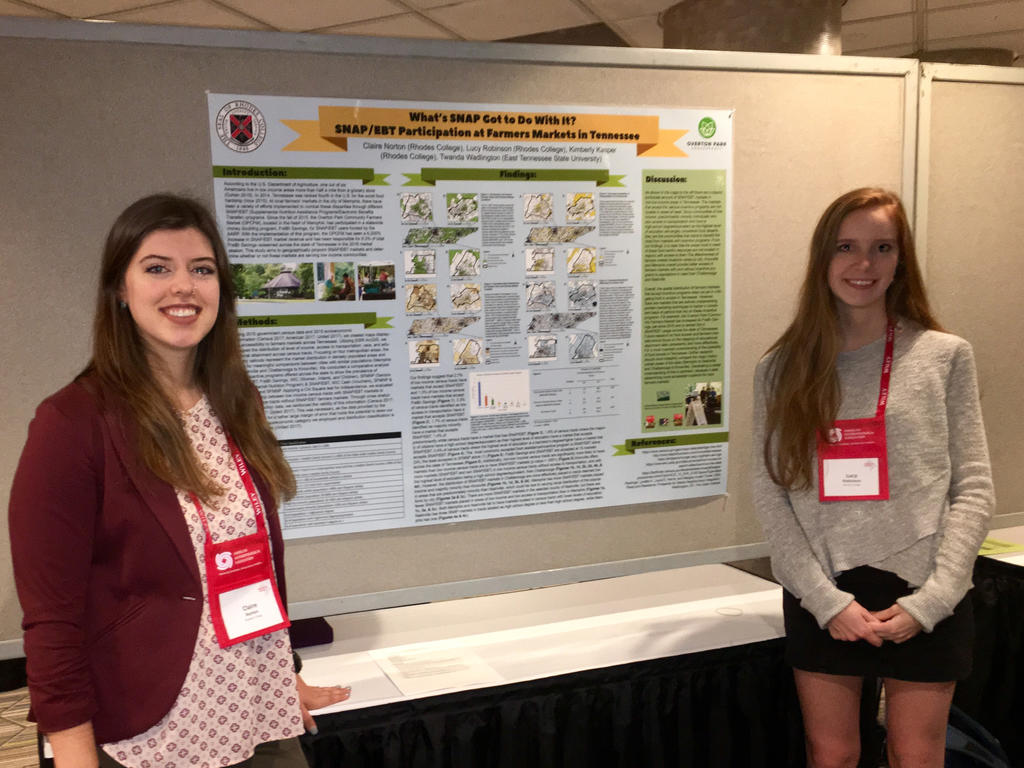Rhodes students, along with anthropology professor Kimberly Kasper, presented their undergraduate research at the recent American Anthropological Association Meeting held in Washington, D.C. Presenters included Anya McKay’18, Claire Norton ’17, and Lucy Robinson ’18.
Anya McKay’18 and University of Memphis graduate student Daryl Stephens presented a paper on their research, titled “Farmers Markets and Low-Income Communities: The Implications of Physical Space and Occupied Space in Memphis,” which explores the challenges and successes the Overton Park Community Farmers Market (OPCFM) has had in reaching SNAP/EBT beneficiaries. As a Food Security Fellow in 2015, McKay helped implement a program called Fre$h Savings that doubles the amount of money a SNAP/EBT user spends on their card at the market, and she also conducted ethnographic research on the health, social, and economic impacts of farmers markets.
Claire Norton ’17 and Lucy Robinson ’18 presented their poster, “What’s SNAP Got to Do With It? SNAP/ EBT Participation at Farmers Markets in Tennessee,” which considers how decisions of market placement serve to reinforce systematic boundaries to access. Norton currently serves as the OPCFM market manager, while Robinson conducts research and offers additional support to the Fre$h Savings program. Throughout the fall of 2017, Norton and Robinson used GIS to map the spatial representations of access to market distribution across the state of Tennessee in relation to income, race, level of education, and access to transportation.
Kasper presented her paper “ ‘Food Justice’ in the Barbeque Capital of the World” in addition to participating in a session titled “Black Food Matters: Race, Food Consumption, and Resistance in the Age of Food Justice.” Kasper used archaeological, historical, and ethnographic work to describe the intersections between the historical materiality and cultural symbolism of barbecue cuisine in around Memphis.
